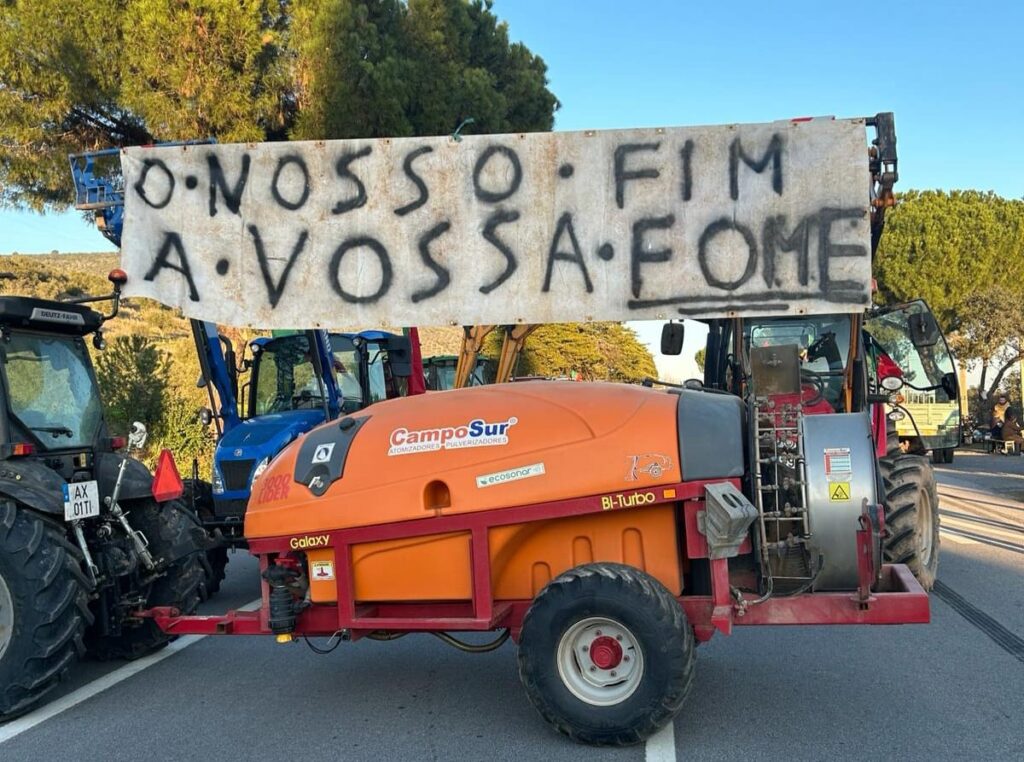The Government of Luís Montenegro committed today to reprogramming the Common Agricultural Policy Strategic Plan (PEPAC) and reinforcing the “political relevance” of the Ministry of Agriculture and the sector.
“In the last eight years, the agricultural and forestry sector has seen public disinvestment. The ministry responsible for Agriculture gradually lost structures and the rate of investment of European funds also decreased. Communication with the sector deteriorated and, in turn, the sector's image among the public was damaged due to lack of knowledge of the sector's fundamental role in food production and effective contribution to economic, environmental and social sustainability”, it reads in the Government program.
Thus, the executive committed to “resuming the growth dynamics” of the sector and improving its income, guaranteeing it “confidence and predictability”.
Among the measures known today are the resumption of the “political relevance” of the Ministry of Agriculture, led by José Manuel Fernandes, and the reprogramming of PEPAC, “simplifying procedures for beneficiaries”.
The Government assured that it intends to enhance the “institutional functionality” of the ministry and its bodies, reinforce investment in research in the cork oak, stone and maritime pine sectors, consolidate the role of the Institute for the Conservation of Nature and Forests (ICNF) and return to have animal welfare under the responsibility of Agriculture.
On the other hand, it wants to review the career of nature watchers and enhance the career of forestry sapper, reinforce the production of meteorological information necessary for the sector, implement the plan for aquaculture in transitional waters and develop a communication strategy for the agricultural sectors , forests and fisheries.
In terms of simplifying procedures, the executive defends the reduction of bureaucracy in processes, the introduction of simplified cost regimes, the reduction of concept costs and the streamlining of licensing procedures for agricultural and forestry infrastructure on farms.
Among the measures foreseen in the Government's plan is also the timely payment of aid to farmers, the reduction of the sector's trade balance deficit, “through an increase in exports, an increase in the degree of self-supply […] and an improvement in the income of producers ”.
The executive also aims to create financial instruments for the capitalization of companies and for financing projects in the agricultural, forestry and fisheries sectors, arguing that the European Investment Bank “will be called upon to play an active role” and contribute to the “strategic autonomy of the European Union”, with the strengthening of the sector’s competitiveness, using the STEP program – Strategic Technologies Platform for Europe to attract investments.
In terms of water capture and storage, the Government wants, for example, to invest in increasing the storage capacity of surface water, review the limits of public irrigation perimeters and “increase the amount of treated wastewater used in the primary sector” .
Finally, with regard to fisheries, the executive promised support for the decarbonization of the fishing fleet and support for the artisanal fishing fleet, with improved working and safety conditions, attracting young people to the sector and facilitating public and private investment in ports and adjacent infrastructures.



















Comments